Personally, I think superhero is and has been its own genre for quite some time now. While, you can loosely placed it under under the fantasy umbrella, this does not always work. Because as expected you will find pretty much any and all genres represented in the pages of a simple series like, Spiderman for example. If we look at comic books in general this is a common feature. They aren't self limiting, in fact it appears that the more mumbo jumbo a writter piles on, the better. Many of the comic books I read as a childtouhed on elements that were clearly fantasy, yet you also saw sci-fi, as well as supernatural spirituality.
Without a "clearly" defined path it is hard to classify specific works, let alone the medium as a whole. Because that is what it is.
A medium.
For a genre to be defined it at the very least needs a common unifing theme. And that is something that seems to evade the different comic offerings. Or does it?
If you dig deeper you will see some of the elements central to the superhero universe do provide a rough sketch of what they are about. One aspect, protecting the everyday you and I, is a common element that is found in all of the mainstream properties you will see in shops today. While the idea may seem nobel, people like us are often nothing more than collateral red shirts there to die in en mass.
So when you look, there is a central theme that binds them together forming a genre. It is interesting to look at the different media, how does it sell you on the idea of watching the movies when they are advertised? Rememer they are selling you on the idea so they need a way to tell you waht the film is about. They don't call Guardians of the Galaxy and Batman Vs. Superman a fantasy film, nor do they use sci-fi, rather they make it clear that it is a superhero film.
When you boil it down to its core principles science fiction is about things we think might be possible. On the otherhand, fantasy is about things we know are not. I understand that this is a rather blunt example, at times things are more obtuse than that and it can be hard to tell one from the other sometimes, and of course, there is the issue that science fiction does not always age well, but neither does fantasy. While this can be argued on the level of probable vs. inprobable with fantasy we know the answer. However, there are plenty of classic sci-fi works which were published long before their ideas even got much though, but are today now firmly in the realm of possible, or reality.
Yet, no matter how much they try and sell you the idea that Iron Man is possible, he's rich and smart after all, he is nowhere close to ever becoming a reality. Yet, this does not exclude him from one day being a reality. On the other hand, Doctor Strange is magic and there is little that will ever change that. But yet they have interacted on numerous occasions so what would those stories be categorized as?
It is this ambiguity that leaves many people confused, yet they are two rather clearly defined cases.
What about other offerings in the superhero genre?
Let's take Superman for instance. He is somewhere in between, his backstory, his excuse that "he's an alien" is a very weak explanation for why he has the powers that he has powers.
Does this limit his ability to being categoried into a sci-fi genre? No matter how much it pains me, poorly researched sci-fi is still sci-fi.
And most superhero pieces are just that.
Poorly researched, no matter if the topic is sci-fi, fantasy, or reality. The question is less "is this possible" and more "does the writer think this is possible". Even then, there's soft sci-fi that bends the rules a bit in their favor and hope that the reader does not notice, or at the very least mind too much. One good example of this is Back to the Future. I'm sure the writers knew that a time machine like that is impossible, but it's still sci-fi.
And it is still fun.
And so for those reasons, any form of superhero is never going to fit in a box, unless that box is redefined and named something unique. Thus superhero, as a whole is a genre no matter what subject matter is being touched on.

I know that PKD has become one of the greats in sci-fi. But for me he is over hyped. Put the stone down. Philip K Dick's work often revolves around epistemology and identity.
Or let me put it like this: We have books where, time and time again, the main character is often lead to doubt their senses, or their knowledge, or their identity, or in the case of some of the most popular ones reality.
He leaves you with a sense of how do we know what we know? Which has been handled by other authors much better.
I don't mind books that leave you with a sense of; Can we be sure? Because this sensation can be very rewarding. Not in PKD's case. Let's not forget that he was plagued by schizoid symptoms, and that alone would certainly make him more sensitive to the topics of epistemology and identity.
Just from the way his stories were presented I never felt like they would be for me.
And yet I gave into the hype. After all I had heard a lot of good things from people that I respected about Philip K Dick. I picked up "A Scanner Darkly" and honestly it was an underwhelming experience. And wasn't not impressed by it in the slightest. While the jacket blurb sounded really interesting, I didn't feel that the content delivered on the promise of the blurb.
Was this book a typical representation of his work? I asked myself that for a few years until I picked up another one on the suggestion of friends who couldn't understand why I was not getting it. Was there so much to get I wondered. So I worked my way through "Do Androids Dream of Electric Sheep", "The Man in the High Castle", and "Ubik" much to my chagrin.
What I will say is that his prose is for the most part bad. Some of his ideas and philosophies have merit, and, at least for me, could have been very powerful. But he has a tendency to get in his own way.
Skip anything PKD.
What can I say, I am a sucker for good British sci-fi series, and this one offers everything that I like about the genre. And it has an exceptional premise:
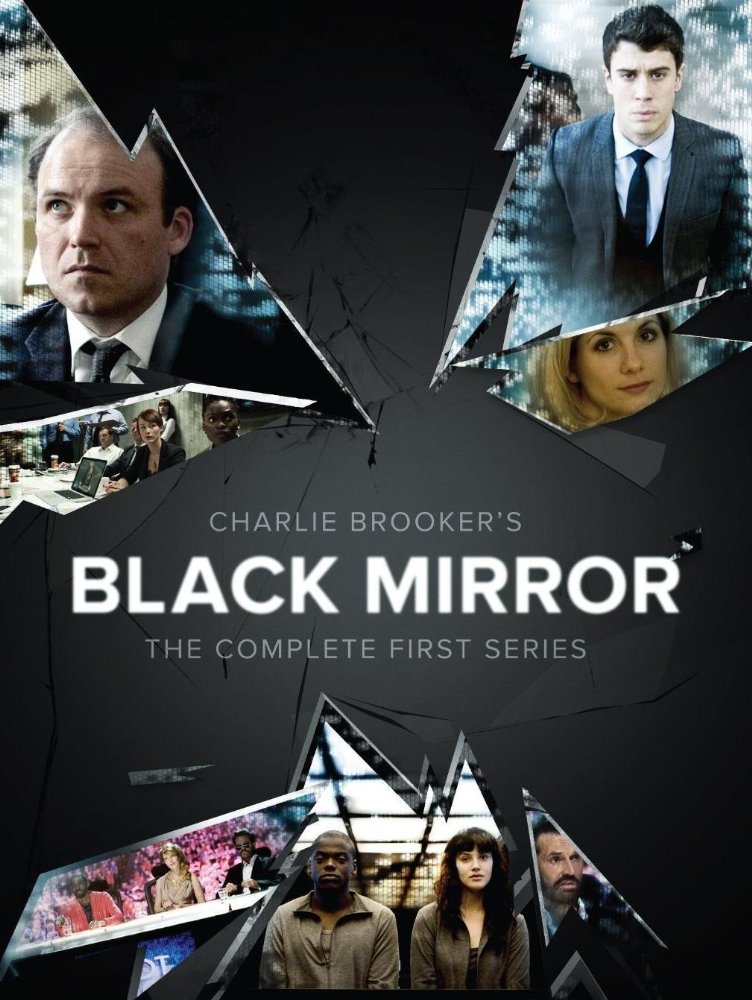
Charlie Brooker explained the series' title to The Guardian: "If technology is a drug – and it does feel like a drug – then what, precisely, are the side effects? This area – between delight and discomfort – is where Black Mirror, my new drama series, is set. The 'black mirror' of the title is the one you'll find on every wall, on every desk, in the palm of every hand: the cold, shiny screen of a TV, a monitor, a smartphone."
The first two series of the programme were produced by Zeppotron, for Endemol. An Endemol press release described the series as "a hybrid of The Twilight Zone and Tales of the Unexpected which taps into our contemporary unease about our modern world", with the stories having a "techno-paranoia" feel. Channel 4 describes the first episode as "a twisted parable for the Twitter age". "Black Mirror" series 1 had a limited DVD release for PAL / Region 2 on 27 February 2012. This was followed by a DVD release of series 2, also PAL for region 2 only.
According to Brooker (speaking to SFX), the production team considered giving the series a linking theme or presenter, but ultimately it was decided not to do so: "There were discussions. Do we set them all in the same street? Do we have some characters who appear in each episode, a bit Three Colours: Blue/White/Red style? We did think about having a character who introduces them, Tales from the Crypt style, or like Rod Serling or Alfred Hitchcock or Roald Dahl, because most anthology shows did have that... but the more we thought about it, we thought it was a bit weird."
Netflix picked up the series after the first two seasons, and it hasn't lost anything from the transition.
Check it out.
I think that sometimes I get so caught up in a book, so emotionally invested in the characters that when something big happens in the story I am emotionally affected by it as well.
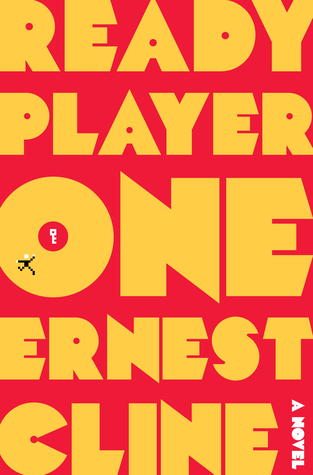
Piers Anthony, who many of you may know for his young adult work has a nice little series called "Incarnations of Immortality" series, and while it isn't entirely whimsical it has plenty of whimsy. Each book is based on the personal incarnation of an eternal concept; death, war, time, nature, and fate and deals with issues like sex, sin, martyrdom and philosophy. They're quite good and realtively light for the topics which are addressed in each book. Though, whimsical they are all very nuanced and different from his Xanth works.
But let's not forget:
- Ready Player One by Ernest Clines
- Redshirts by John Scalzi
- Year Zero by Rob Reid
While not sci-fi "Guards! Guards" by Terry Pratchett will always bring a smile to my face.
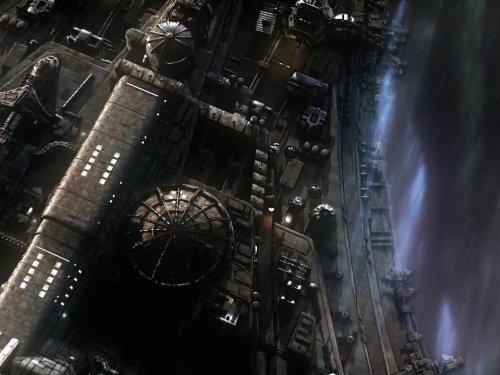
What can you say about Stargate Universe that hasn't already been said?
For one, it gets a lot of heat for being something that many feel SG1 was not. This isn't a bad thing in itself, they wanted to make the story even bigger, and they should be pleased with themselves, because they did. I think that I am actually one of the few people who thought SGU was a good series. What may have turned people off was that it had a similar tone to "Battle Star Galactica", which at the time was the sci-fi show heavy weight they were up against.

But it also had a problem in the start, the first few episodes were very hard to grasp the concept of, even if you had a strong understanding of the world that was built up until that point. The main problem with this was that the show's creator decided to make a mistake, and purposefully left information out.
Maybe that makes me stupid, maybe I just didn't grasp the grand concept, but with the way it was told you kept getting confused on where everyone was and it pulled the fledgling story apart.
They used gimmicks to make this work. And honestly it took me several episodes to understand the "communication stones" was what was causing people to just "show up" at different places. They didn't introduce you to the technology until a little later. And at that point you realize they they are replacing characters, when in fact they were using the stones was to help the viewer understand what was going on. Or were they? Personally, I actually think it would have helped more had they gone ahead and changed the actor, rather than making them play a new character.
These problems were what made me think that, while it had a lot of potential, it was misguided and they didn't have room for a lot of additional error. Thus, their creativity got in their way. Mainly, because it got in the way of telling a great story.
Had they worked these quirks out early, that is to say before they actually got ready to shoot, they would have had a tighter story.
But it is not bad. SGU, when I look at it, I see Lost. It is a story based around the characters and their struggles in the world that was what made it worth watching.

I just started watching "Dark Matter" and though I am a little late to the game I'm loving it. It is as much fun as I have had with a series since Babylon 5 season 3, and Farscape.
A lot of people keep telling me to try "Continuum" but I have never managed to get into it. It reminded me way to much of "Timecop" or what ever it was from the early 1990s and JCVD's idea of sci-fi was never my thing. Beyond that, time travel in sci-fi is usually a cop-out, a flimsy excuse for avoiding plot holes or otherwise a cheap writing device. I have been told that in "Continuum," the time-travel premise is used exactly once in the first few seasons, except for one accident.
"Orphan Black" looks promossin, since it is a biotech-focused conspiracy thriller with a brilliant lead actress who plays about half the roles, all of whom are very distinctive.

"Mr. Robot" has been on and off my list for some time now. It runs on USA, but I watched it on Amazon. I would call it a modern cyberpunk, like "Sneakers" which then meets "Fight Club" or other such movies. This blending has left me out in the cold a couple of times so I am not so possitive about it. Still it has some good lines.
But my fav would probably be SG-1. "Babylon 5" would be my next choice after the "Stargate", it would have even been my first, since I really love what JMS did with the world. But on a number of levels the show is uneven, the transition with season 1 to 2. Granted it had to be done, the lead was sick, but there is another bump in 4 to 5 that is not made better by the different directors and scriptwriters. This is a problem that "Sliders" had. Due to the format they just couldn't commit to developing the culture and lore of the worlds and this amazing show lost in the end.
Even though "Stargate" ran for 10 years it didn't have hese bumps.
God I want a new "Stargate" with a BBC Sherlock sort of format. I would be thrilled with four 1.5 hour episodes per year where you really dive into a world and their culture, exploring something grand from the universe, with the focus on space and a couple other nearby worlds.
And it really had so much to offer. In "Stargate SG-1" you have episodes in space, in medieval-style towns, on alien worlds. The variation makes it easy to watch, and no matter the setting you have great character development. I knot that the dialogue can be corny at times, but it was usually meant to add some fun.
As with B5, my love is definately coming from the nostalgia factor but eh, I'd still recommend it.

I just through I would throw out some suggestions to get your sci-fi appetite going:
- Vattas War series by Elizabeth Moon
- The Everything Box by Richard Kadrey
- The Gate of Ivory by Doris Egan
- The Hike by Drew Magary
- 14 by Peter Clines
And what list would be complete without "The Hitchhiker's Guide to the Galaxy?"
Today I wanted to leave you with a short list of books that are similar, if not in all aspects - at least some, to the Hyperion series. I have always thought that "Dune" by Frank Herbert is the only book that rivals Hyperion in the sheer scope, creativity, and atmosphere. If you have yet to open the pages of "Dune," maybe you have seen the film, do yourself a favor and give it a try.
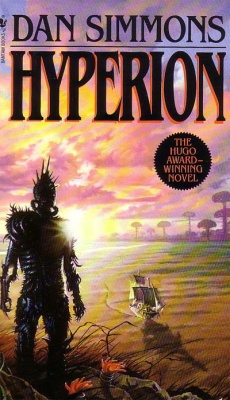
The if you are left hungry for more, here are some other books that are similar in some way or another, and you want to give them a try:
- "A Fire Upon the Deep" by Vernor Vinge
- "Book of the New Sun" by Gene Wolfe
- "Ilium and Olympos" by Dan Simmons
- "Lord of Light" by Roger Zelazny
- "Anathem" by Neal Stephenson
I will say this, the last two books are not as epic as the first three, but have a similar tone. All of them are extremely creative, however.
I'll stop now, before this just turns into a list of my favorite books which have a similar flavor to Hyperion are.









 Paper Girls, Vol. 1by Brian K. Vaughan
Paper Girls, Vol. 1by Brian K. Vaughan The Long Cosmosby Terry Pratchett, Stephen Baxter
The Long Cosmosby Terry Pratchett, Stephen Baxter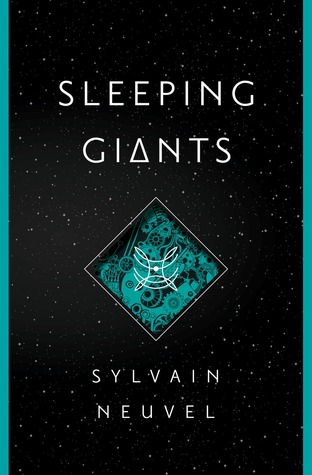 Sleeping Giantsby Sylvain Neuvel
Sleeping Giantsby Sylvain Neuvel The Buntline Specialby Mike Resnick
The Buntline Specialby Mike Resnick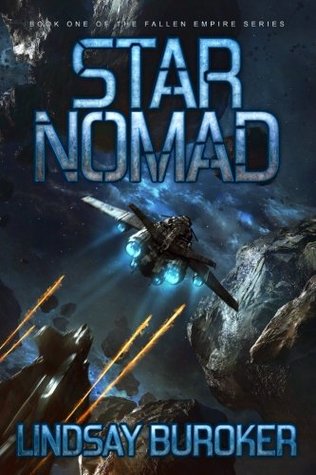 Star Nomadby Lindsay Buroker
Star Nomadby Lindsay Buroker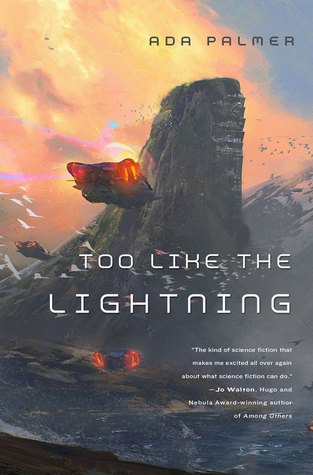 Too Like the Lightningby Ada Palmer
Too Like the Lightningby Ada Palmer